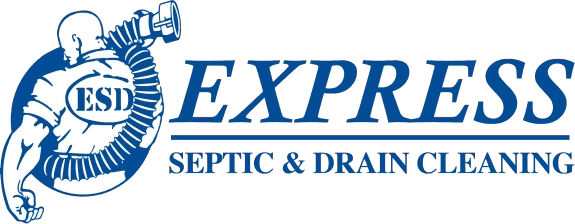The septic tank system is one of the first forms of treating wastewater that appeared in homes and properties in the 1800s. When outhouses were a common form of bathroom and sanitary practice, the need for a new system that ran from the home was addressed. The first septic tanks were made of clay and did not last as long as the modern septic tank system now lasts.
The first septic tank units simply allowed wastewater to leave the home in an easy fashion. Leaving the house to have sanitary living conditions was no longer necessary. Over the decades, septic systems have become more efficient and environmentally safe. It’s not unusual, with proper care and maintenance, for a modern septic tank unit to last decades.
What Is a Septic Tank?
A septic tank is an underground wastewater storage and cleaning system. They are designed for homes and properties that don’t use city or county water treatment plants. They use a combination of your home’s piping system, the treatment materials within the tank itself, and the natural setting.
There are five main parts to a septic system. From your home, a series of pipes run from all the drains within the home. One singular pipe carries this wastewater to the septic tank. The tank holds all the water and performs a separation. The solid waste sits at the bottom of the tank while the liquid waste flows into a distribution tank.
From the distribution tank, the wastewater is distributed throughout the natural landscape buried deep. Each of these pipes leads the water away from one central area. The wastewater is naturally absorbed into the ground. If you notice a large pool of water on your property, it’s a sign you could have a backup somewhere along this system.
How Do You Know If You Need a Septic System?
Knowing if you need a septic system is a pretty easy decision to make. If your home does not have a city or county-provided sewage system, you’ll likely need to have a septic tank on your property. If you use well water, this is also an indication that you need a septic system. If the property you’re on has been established for some time, it’s likely there is already a septic unit installed.
One way of finding out if you have a septic unit is searching your property for an opening that is covered by a lid or some sort of cover. This is the entrance to your septic system and the means by which you can maintain it. Another way of knowing if you have a septic system is if the property does not have a water meter. Well and septic tank units do not require a meter to gauge usage.
How a Septic Tank Is Built
The ground is prepared for a large tank, usually between a 700-gallon to 1200-gallon unit. The tank is lowered into the ground and covered after being connected to the main pipe from the home. A distribution field is also set up connected to the septic tank.
Septic tanks are generally made of three potential materials. Most are made of concrete, polyethylene, or fiberglass. The major difference between the three materials is cost. All three are built for long-term usage as the replacement of a septic system is laborious and costly.
The distribution field can be made of equally varied materials. It is the most important septic system component as it ensures the wastewater is distributed equally and safely. When properly installed, the distribution tank leaves behind the solid waste. The solid waste sits at the bottom of the tank and goes through natural decomposition.
How a Septic Tank Is Maintained
Most septic systems can last between 15 and 40 years. But, that is dependent on proper and regular maintenance. Regular pumping and cleaning of the septic tank is a must. Without this attention and care, many variables can cause backed-up tanks.
There are a few signs your septic tank needs attention outside of regular maintenance. The primary means of noticing a septic issue is if you have pooling water somewhere in your yard after heavy rain (or after no rain at all). Pooling water is a clear sign of a backed-up system.
Another sign you could have septic issues is if the drains in your home are moving slowly. One drain isn’t necessarily a sign of a problem. But if your shower, sinks, and toilets are each slow to drain, this is a sign of a potential problem in your septic system.
Foul odors in the house or your yard can signal that you need to give some attention to the septic system. The wastewater could be trapped with the solid waste. Instead of natural biodegrading of the solid waste, it could be approaching the surface of your lawn. This is a time to have a professional look at your system before it backs into the house.
If you have pockets of your lawn that are greener and lusher than other areas, this could also be a sign you need to give some attention to the septic system. Greener than usual areas could be a signal that an unusual amount of water has pooled under the soil. Your septic unit could have a major backup that would go unnoticed until you have water in your home.
Of course, regular maintenance will help minimize the risk of any of the above problems. Septic units are very difficult to self-maintain because of the complexity of the system. It also requires specialized equipment to reach into the tank itself to pump and repair. While it’s rare for the entire unit to need replacing before decades have passed, there is a need for frequent washing and pumping of the septic unit.
Express Septic & Drain Cleaning is a full-service maintenance and installation company serving Nampa, ID and the surrounding areas. We understand and follow the Environmental Protection Agency guidelines in regard to septic maintenance.
Your septic system should be pumped every three to five years. Over time, particles from the water and the tank itself can begin to build up and clog the tank. Regular flushing washes these particles from your lines and pipes, allowing water to flow smoothly. Without these regular flushes, a clogged septic tank could result.
As we’ve established, you do not want the hassle of finding out too late that your system is backed up. Regular maintenance will keep your mind free of any hassle that could come from a problematic septic system.
Without the ability to flow freely, the water within the septic system will slowly back up. In time, the water will go back into the home. This will cause flooding, potentially expensive damage, and a huge mess. After all that, you’ll still need to get the septic system flushed. Regular maintenance is a means to avoid unwanted complications.
To have your septic system checked, cleaned, and maintained, give Express Septic & Drain Cleaning a call today. You’ll receive a fast and friendly response. We provide septic services, drain field replacement services, and enzyme treatment to Nampa, ID residents.


